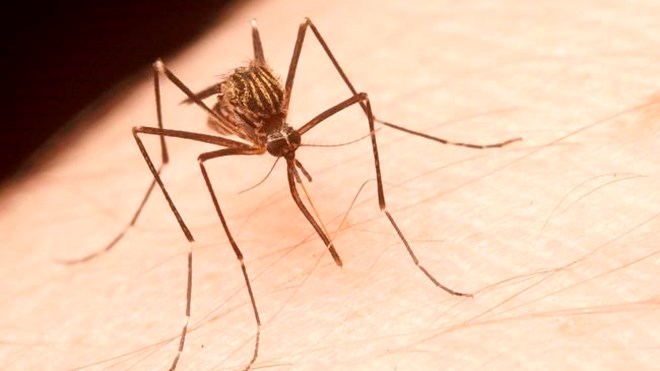West Nile virus has been detected in Bradford West Gwillimbury, and residents should consider this “the new normal,” said Brenda Armstrong, manager of the health hazards program for the Simcoe Muskoka District Health Unit.
The health unit is now reminding residents to protect themselves after mosquitoes collected from a trap in BWG tested positive for the virus yesterday — the first lab-confirmed evidence of West Nile in Simcoe Muskoka this year.
Armstrong said West Nile-positive mosquitoes have been found in the BWG area for the last two years and in Simcoe Muskoka since 2003, and, as the climate continues to warm, they are expected every summer.
“It is the new normal. It’s going to be here every year,” she said. “As our climate gets warmer, we anticipate that this actually is going to increase with time.”
There are several ways to protect against West Nile-positive mosquitoes:
-
Use a mosquito repellent containing DEET and follow the manufacturer’s instructions
-
Wear light-coloured clothing and cover up in areas where mosquitoes are active
-
Stay indoors when mosquitoes are most active, especially at dusk and dawn
-
Reduce mosquito breeding sites by removing standing water around your house or cottage
“This is a reminder to take personal protection, (but) we don’t want people to be hiding indoors, afraid of mosquitoes,” Armstrong said.
About 80 per cent of people exposed to West Nile virus have no symptoms, she said.
Less than one per cent of people who have it develop neurological symptoms that can become quite serious, and anyone feeling significantly ill should see a doctor, she said.
Mosquitoes can fly up to a couple kilometres around their habitats, so there is no specific area in BWG to avoid, Armstrong said.
The health unit does extensive surveillance of potential mosquito breeding grounds, especially municipally-owned catch basins, she said.
“They preferably breed in urban areas in very stagnant and dirty water,” she said, adding the health unit adds larvicide to catch basins to cut back mosquito populations before they can potentially get the virus.
“It catches them before they become part of that cycle.”
For more information, visit the health unit’s website or call Health Connection at 705-721-7520 or 1-877-721-7520 Monday to Friday, 8:30 a.m. to 4:30 p.m.



